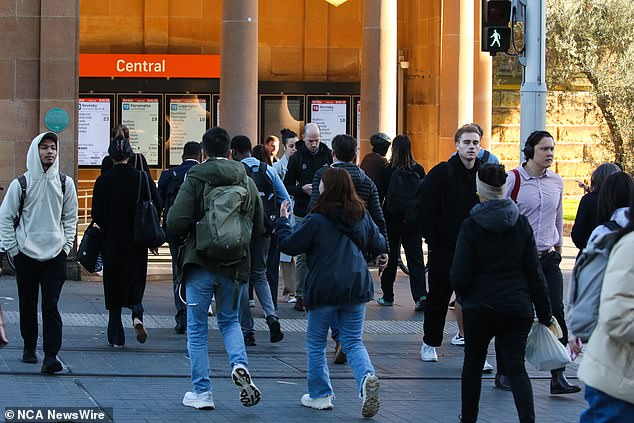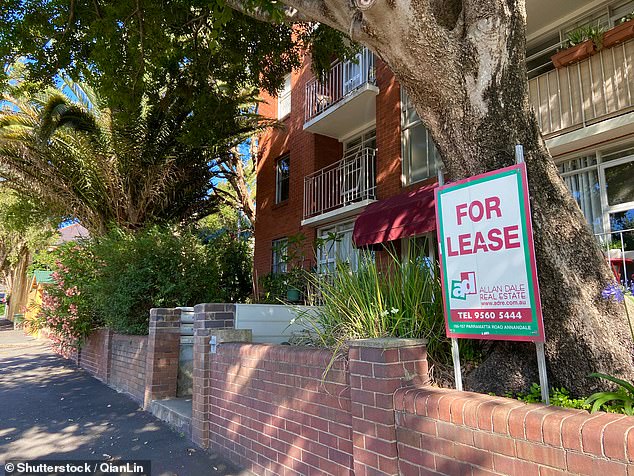- Australians pay an average of $15,000 extra in rent
- Two cities saw an increase of more than $18,000
A new report has revealed that renters in Australia are now paying on average almost $15,000 more a year to rent a home since the pandemic.
Everybody’s Home released data showing the shocking annual rent rise that has hit Australians living in capital cities since the start of the Covid pandemic.
The data revealed renters spent on average almost $15,000 more a year to rent a home since January 2020, but for people living in Sydney and Perth that amount was over $18,000 more a year.
Everybody’s Home spokesperson Maiy Azize said the biggest cost of living for most people living in Australia was keeping a roof over their heads.
“Sharp rent growth is pushing more people into serious housing stress and homelessness,” he said.
‘People are sacrificing what is necessary to pay rent, living in appalling and unsanitary conditions because there is nowhere else to go, and abandoning important life decisions due to housing insecurity.
“Australians are being excluded from the cities where they work, which can impact the liveability of our cities and the quality of essential services.”
The report found that renters in capital cities were paying on average $14,700 more a year to rent a home and $9,600 more a year to rent a unit compared to the beginning of 2020.
A new report has revealed that renters in Australia are now paying on average almost $15,000 more a year to rent a home since the pandemic.
The cost of renting a unit in Adelaide ($10,192), Brisbane ($10,348) and Sydney ($10,452) was above average, and the cost of renting a unit in Perth well above the average price was $14,508 more than four years ago .
Two capital cities recorded above-average increases for renting a home, with people in Perth paying more $18,304 than four years ago and renters in Sydney paying an extra $18,512 in rent each year.
Renters in Canberra ($5,616), Darwin ($14,612), Hobart ($3,536) and Melbourne ($10,764) were still paying thousands of dollars more to rent a home, but less than the average increase.
The highest cost of renting a unit in below-average cities were Canberra ($4,784), Darwin ($4,524), Hobart ($2,184) and Melbourne ($7,124).
The report was released to mark the start of Anti-Poverty Week and Ms Azize called on all Australians to support her call for more social housing to solve Australia’s housing crisis.
Azize said there was a huge social housing deficit of 640,000 homes, which is expected to rise to almost one million homes within two decades.
“We need to end the deficit and make social housing an option for more Australians, not just a safety net for the marginalized,” he said.
“We are also asking all candidates competing for votes in the upcoming elections to sign our Roadmap to Reform, which includes phasing out tax breaks for real estate investors.”

Everybody’s Home released data showing the shocking annual rent rise that has hit Australians living in capital cities since the start of the Covid pandemic.
The proposed reform details four factors to dramatically rethink how Australia could address its housing crisis, including increasing Centrelink payments and introducing nationally consistent protections for renters.
This included limiting rent increases, longer leases and minimum living standards.
The roadmap also included phasing out capital gains tax and negative gearing and working towards almost one million social homes over the next 20 years.
Azize said poll after poll showed that most voters wanted measures on investor tax relief because they were unfair and raised the cost of housing for everyone.
‘Poverty is a political choice. Unaffordable housing is a political choice. It doesn’t have to be like this,’ he said.
‘The federal government has the power to make Australia a fair and affordable place to live. “It is time for the government to take action that reflects the severity of this deep and prolonged crisis.”

